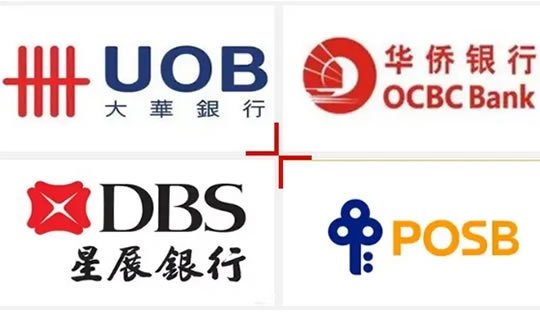The Monetary Authority of Singapore (MAS) has announced an enhanced Open Banking framework aimed at unifying technical standards, reinforcing data privacy and cybersecurity rules, and broadening participation to more financial technology providers. The new framework—scheduled for phased rollout over the next 12 months—seeks to balance innovation with consumer protection and position Singapore as a regional leader in secure, consumer-centric financial services.

Singapore, September 2025 — The Monetary Authority of Singapore (MAS) today unveiled a sweeping upgrade to its Open Banking framework, a move designed to build stronger trust in digital financial services while accelerating innovation across the nation’s banking sector.
Open Banking allows customers, with their consent, to share financial data securely with third-party providers. This enables services such as personalised budgeting apps, automated investment tools, and faster loan approvals. While Singapore’s initial Open Banking guidelines have been in place for several years, rapid fintech adoption and rising cybersecurity concerns prompted regulators to tighten rules and expand the program’s reach.
Why an Upgrade Was Needed
MAS officials explained that customer expectations for seamless digital banking have grown rapidly, but so have threats. Industry surveys show that while many consumers appreciate the convenience of sharing account data for tailored financial services, they worry about data misuse, inconsistent security practices, and unclear liability in the event of breaches.
At the same time, technology has advanced: more banks and fintech firms now rely on application programming interfaces (APIs) to exchange information in real time. Without unified standards and stronger safeguards, regulators warn, the risk of data leakage, cyber-attacks, and cross-border misuse could undermine consumer confidence.
Key Elements of the New Framework
The enhanced Open Banking plan introduces five major pillars:
- Unified API and Data-Sharing Standards MAS will work with banks and accredited fintech companies to create a single national API protocol. This standard will define encryption methods, access permissions, and data formats to ensure interoperability and reduce integration costs.
- Stronger Cybersecurity and Compliance Requirements Participating institutions must adopt end-to-end encryption, multi-factor authentication, and continuous intrusion monitoring. Independent security audits will be mandatory, and failure to comply could lead to penalties or suspension.
- Broader Participation with Higher Entry Bars Beyond licensed banks, MAS will allow carefully vetted fintech firms, payment providers, and data intermediaries to join. These companies must demonstrate strong financial health, robust technology capabilities, and a clean regulatory record.
- Enhanced Consumer Control and Transparency Customers will gain clearer rights to approve, track, and revoke data-sharing consents at any time. Institutions will need to explain—in plain language—how data will be used and what recourse customers have if misuse occurs.
- Phased Implementation and Ongoing Review The rollout will occur over the next year. MAS plans public consultations, pilot programs, and continuous monitoring to fine-tune requirements as technology and market needs evolve.
Industry Reactions
Major Singaporean banks and leading fintech players welcomed the plan.
A senior executive at a top local bank commented that “a common API standard will simplify integration with partners and improve security, ultimately benefiting customers.”
Fintech entrepreneurs see opportunities too. Unified technical requirements and clearer legal rules could accelerate the launch of innovative apps for small-business finance, instant credit scoring, and personalised wealth management.
However, some smaller startups voiced concern over higher compliance costs. Mandatory audits and advanced cybersecurity measures could strain limited resources, potentially slowing market entry. Analysts believe MAS may consider support schemes or sandbox programs to help promising young firms meet the new bar.
Broader Implications
Experts say Singapore’s move reinforces its ambition to remain a regional financial technology hub. As open banking ecosystems gain traction globally—in the European Union under PSD2, in the United Kingdom, and in parts of Asia-Pacific—Singapore’s enhanced framework positions it at the forefront of safe, consumer-first innovation.
The initiative also aligns with growing global attention to data privacy. By codifying strong consumer rights and accountability mechanisms, MAS is signalling that data belongs to the customer, not the bank.
Investors and international partners are likely to view the policy as a sign of long-term stability, which may attract further cross-border financial activity.
Looking Ahead
MAS will publish draft technical specifications in the coming months and invite feedback from banks, fintech firms, and consumer groups. A pilot phase with selected institutions is expected before full rollout within 12 months.
For Singaporean consumers, the benefits are clear: more choice, faster services, and stronger protection. For banks and fintech firms, the challenge is to scale technology and compliance systems quickly enough to seize the new opportunities.
As one industry analyst summed it up:
“This is not just a regulatory update; it is a blueprint for the next decade of digital finance in Singapore. Institutions that adapt early will shape the future of banking in the region.”
Open Banking Singapore, Monetary Authority of Singapore, MAS, data sharing, cybersecurity, consumer protection, financial technology, fintech regulation


